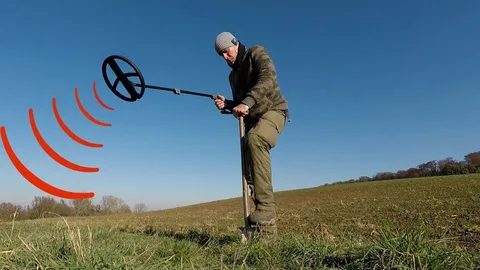Coal open pit mining is a widespread practice that has significant environmental impacts. The extraction of coal through open pit mining not only impacts the surrounding ecosystems, but also poses a threat to the health and well-being of nearby communities. In this paper, we will explore the environmental impacts of coal open pit mining, discussing the effects on air and water quality, land degradation, and the release of greenhouse gases. We will also consider the potential solutions and alternatives to mitigate these negative impacts and promote sustainable mining practices.
Coal open pit mining has significant environmental impacts due to the excavation and large-scale removal of coal deposits from the Earth's surface. This type of mining can result in the destruction of vast areas of land, deforestation, and habitat loss for numerous plant and animal species. Additionally, the process can lead to soil erosion, water pollution, and air pollution caused by the release of dust, chemicals, and other harmful substances into the environment. The disposal of waste rock and other mining byproducts also contributes to the negative environmental effects of coal open pit mining. Overall, the environmental impacts of this mining method highlight the urgent need for sustainable and environmentally responsible practices within the coal mining industry.
Coal open pit mining has significant environmental impacts due to the excavation and large-scale removal of coal deposits from the Earth's surface. This type of mining can result in the destruction of vast areas of land, deforestation, and habitat loss for numerous plant and animal species. Additionally, the process can lead to soil erosion, water pollution, and air pollution caused by the release of dust, chemicals, and other harmful substances into the environment. The disposal of waste rock and other mining byproducts also contributes to the negative environmental effects of coal open pit mining. Overall, the environmental impacts of this mining method highlight the urgent need for sustainable and environmentally responsible practices within the coal mining industry.
The Environmental Impact of Coal Open Pit Mining

Coal open pit mining has a significant environmental impact, including deforestation, soil erosion, air and water pollution, and disturbance of natural habitats. The process of clearing large areas of land for mining activities leads to deforestation and loss of biodiversity. Soil erosion occurs due to the removal of vegetation and disruption of the soil structure, leading to sedimentation in nearby water bodies. Air pollution is a major concern associated with coal open pit mining, as the process releases large amounts of dust, particulate matter, and other airborne pollutants. The combustion of coal also contributes to air pollution and greenhouse gas emissions, further exacerbating the environmental impact. Water pollution is another significant issue, as the mining process can contaminate nearby water bodies with toxic chemicals and heavy metals. This can have detrimental effects on aquatic ecosystems and pose risks to human health through contaminated drinking water sources. The disturbance of natural habitats and ecosystems due to open pit mining activities can lead to the displacement and loss of native wildlife. This can have long-term ecological consequences and disrupt the balance of local ecosystems. In summary, coal open pit mining has wide-ranging and significant environmental impacts that need to be carefully considered and mitigated to minimize the overall ecological damage.
The Economics of Coal Open Pit Mining: Costs and Benefits
See also: gold extraction process

The economics of coal open pit mining involve a consideration of both costs and benefits. The costs of open pit mining for coal include expenses related to labor, equipment, fuel, and maintenance. Additionally, there are costs associated with environmental impacts, such as land reclamation and air and water pollution. On the other hand, the benefits of coal open pit mining include the creation of jobs, economic development in the surrounding communities, and a reliable source of energy. The overall economic impact of coal open pit mining depends on factors such as the market demand for coal, government regulations, and the availability of alternative energy sources.
Coal Open Pit Mining: Deforestation and Habitat Destruction

Coal open pit mining can have significant impacts on the environment, particularly in terms of deforestation and habitat destruction. The clearing of large areas of land for the construction of open pit mines can lead to the deforestation of important and often irreplaceable forest ecosystems. This deforestation can result in the loss of habitats for numerous plant and animal species, and can also contribute to a significant reduction in biodiversity. In addition to the direct impacts of deforestation, open pit mining can also result in the destruction of habitats through the displacement of soil and the alteration of natural landscapes. This can further exacerbate the loss of habitats and biodiversity in the affected areas. Overall, the environmental impacts of coal open pit mining on deforestation and habitat destruction can be far-reaching and have long-lasting effects on ecosystems.
The Social and Cultural Effects of Coal Open Pit Mining

The social and cultural effects of coal open pit mining can be significant. This type of mining often leads to the displacement of communities and the loss of traditional ways of life for many people. It can also cause disruptions to local economies and impact the cultural heritage of a region. Additionally, open pit mining can lead to environmental degradation, which can have both direct and indirect social and cultural implications. This can include harm to natural ecosystems, contamination of water sources, and impact on traditional practices such as farming and hunting. Furthermore, the expansion of open pit mining operations can also lead to social and cultural conflicts, as communities may have differing opinions on the benefits and drawbacks of the industry. This can cause tension and division within affected areas. Overall, the social and cultural effects of coal open pit mining can be complex and far-reaching, and it is important to consider these impacts when making decisions about such developments.
Innovations in Technology for Coal Open Pit Mining
Innovations in technology for coal open pit mining include the use of drones for surveying and mapping, advanced geological modeling software to identify coal reserves, autonomous haul trucks and loaders for more efficient and safer operations, and advanced monitoring systems for environmental and worker safety. Additionally, advancements in materials and equipment design have allowed for more durable and efficient mining tools and machinery. These technologies have helped to improve the efficiency, safety, and environmental impact of coal open pit mining operations.
The Health Risks Associated with Coal Open Pit Mining
See also: method of mining
Coal open pit mining poses numerous health risks to both workers and nearby communities. One of the most significant risks is exposure to fine particulate matter, which can lead to respiratory issues such as asthma and chronic obstructive pulmonary disease. Furthermore, coal mining operations can release hazardous chemicals into the air and water, contributing to an increased risk of cancer and other serious illnesses. In addition, the process of open pit mining can lead to the destruction of local ecosystems and habitats, affecting the overall health and well-being of the surrounding environment. This can have direct implications for nearby communities, including increased rates of water and soil contamination, as well as disruption of local wildlife. Moreover, the physical demands of working in coal mining, including long hours and exposure to heavy machinery, can also contribute to a range of health issues for workers, such as musculoskeletal injuries and stress-related conditions. Overall, the health risks associated with coal open pit mining are multifaceted and can have far-reaching implications for both workers and surrounding communities. Implementing strict safety regulations and environmental protections is crucial to mitigating these risks and ensuring the well-being of all involved.
Regulations and Policies Governing Coal Open Pit Mining
Regulations and policies governing coal open pit mining vary by country and region. In the United States, the mining industry is regulated by the Mine Safety and Health Administration (MSHA) and the Environmental Protection Agency (EPA). These agencies enforce safety standards, environmental regulations, and reclamation requirements for coal mining operations. In Australia, coal mining operations are regulated by the Department of Industry, Innovation and Science, as well as state and territory agencies. These regulations cover safety, environmental protection, and land rehabilitation. In China, the National Development and Reform Commission and the Ministry of Natural Resources oversee coal mining regulations, including safety standards, environmental protection, and land reclamation. Overall, regulations and policies governing coal open pit mining aim to ensure the safety of workers, minimize environmental impact, and promote sustainable land use. Compliance with these regulations is essential for obtaining permits and operating within legal boundaries.
The Future of Energy: The Role of Coal Open Pit Mining
The future of energy and the role of coal open pit mining are deeply interconnected. Coal open pit mining is a method used to extract coal from the earth by removing the overlying soil and rock. It is a significant source of energy production and supplies a large portion of the world's energy needs. However, the future of coal open pit mining is uncertain due to the growing concerns over environmental impact and the shift towards cleaner and more sustainable energy sources. The mining process can cause deforestation, water pollution, and air pollution, which has led to increasing pressure to reduce reliance on coal for energy production. In response to these concerns, there are efforts to develop cleaner technologies for coal mining and to implement stricter environmental regulations. Additionally, there is a growing focus on transitioning to renewable energy sources such as solar, wind, and hydroelectric power. While coal open pit mining will continue to play a role in meeting global energy demands in the near future, its long-term viability is uncertain. The industry is likely to face increasing challenges as the world transitions towards cleaner and more sustainable energy sources.
Coal Open Pit Mining: A Solution or a Problem?
Coal open pit mining is a method used to extract coal from the ground by removing large portions of the earth's surface. It involves the use of heavy machinery to dig out the coal and requires the clearing of forests and vegetation in the surrounding area. Proponents of coal open pit mining argue that it is an efficient way to access coal reserves and provides jobs and economic benefits to local communities. They also point to technological advancements that have made open pit mining safer and more environmentally friendly. However, opponents of coal open pit mining argue that it has significant negative impacts on the environment. The removal of large areas of land disrupts ecosystems and habitats, leading to loss of biodiversity. Additionally, the process can contaminate water sources and release harmful pollutants into the air. Furthermore, coal open pit mining contributes to the release of greenhouse gases and exacerbates climate change. The burning of coal extracted from open pit mines also generates air pollution and poses health risks to nearby communities. Overall, coal open pit mining is a controversial issue, with both its proponents and opponents presenting valid arguments. The decision to pursue open pit mining should carefully consider its potential impacts on the environment, public health, and local communities.
The Global Reach of Coal Open Pit Mining: Implications for All
The global reach of coal open pit mining has significant implications for all, as it impacts various aspects of the environment, economy, and society. This mining method is employed in many countries around the world, leading to the extraction of large quantities of coal for energy production. Open pit coal mining can result in extensive deforestation and habitat destruction, as well as air and water pollution. The displacement of communities and loss of cultural heritage are also common consequences. Furthermore, the greenhouse gas emissions associated with coal mining and combustion contribute to global climate change. Economically, coal open pit mining can bring jobs and revenue to local economies, but it also has long-term costs and risks that can outweigh these benefits. Additionally, the transition away from coal towards renewable energy sources requires careful consideration and planning to mitigate the social and economic impacts on coal-dependent regions. The ramifications of coal open pit mining are far-reaching and emphasize the need for sustainable and responsible resource management. It is crucial for policymakers, industry stakeholders, and communities to consider the broader implications of this mining practice and work towards a more balanced and equitable energy future.

0 Comments